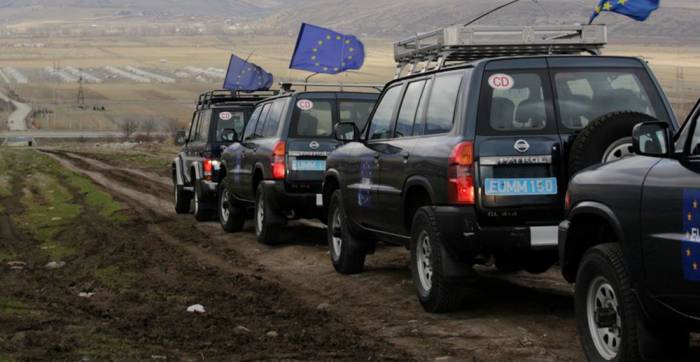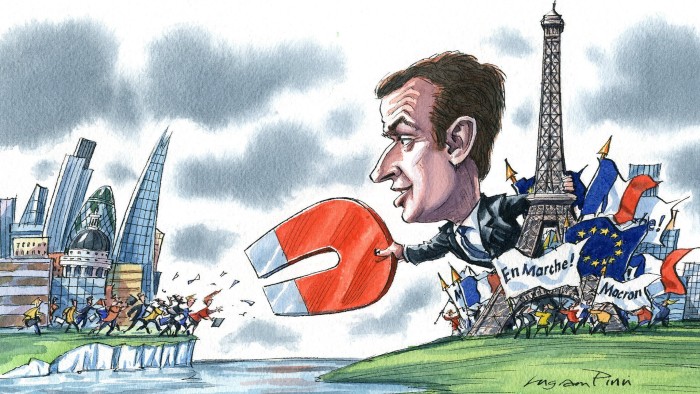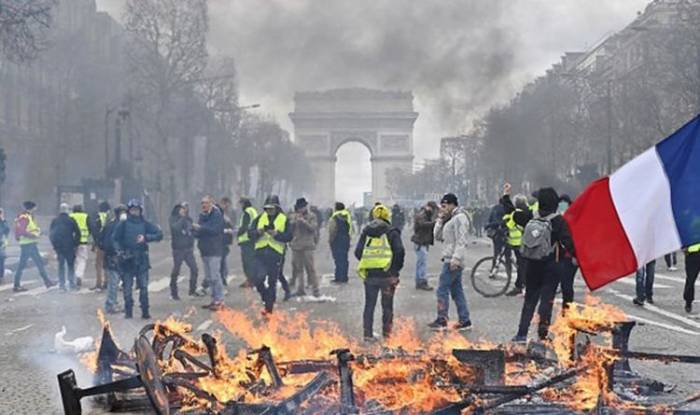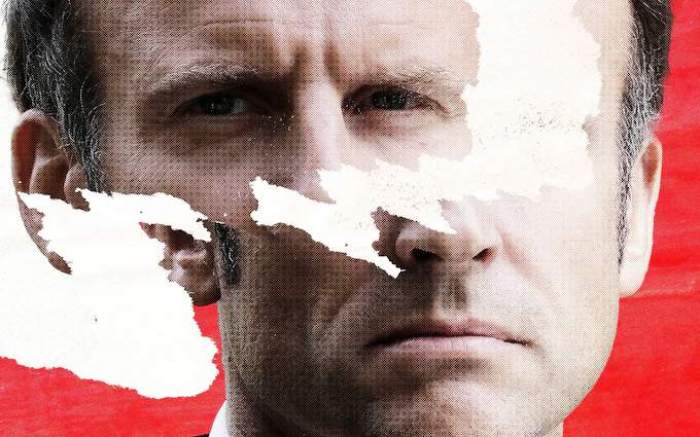Editor’s note: Sergey Markov, Russian political scientist, public and state figure. He is known as an active commentator on political events, often appears in the media and on television, expressing his position on issues of domestic and foreign policy of Russia. The article expresses the personal opinion of the author and may not coincide with the view of News.az.
French President Emmanuel Macron is making a desperate attempt to maintain France’s status as a global power. His efforts to position himself as a “peacemaker” and “global arbitrator” appear increasingly out of touch with reality. Macron’s aspirations to deploy French troops , whether directly or through the European Union, reflect an outdated vision of French influence that no longer aligns with the evolving geopolitical landscape.

One of Macron’s key initiatives has been advocating for the deployment of European troops in Armenia. He has been a driving force behind the so-called EU civilian-military mission in the South Caucasus, which, despite its name, has clear intelligence and military components. This mission is part of a broader strategy to expand French influence in the region, particularly along Armenia’s borders with Azerbaijan, Türkiye, and Iran. France’s traditionally antagonistic stance toward Türkiye and Azerbaijan suggests that Macron’s true objective is to establish a military foothold in Armenia, a move that could destabilize the already fragile regional balance.
At the same time, Macron is considering the deployment of French and EU troops to Ukraine. Reports indicate that French soldiers are already involved in the conflict, with casualties among them. The French leader is now discussing the possibility of sending additional forces to Odessa, ostensibly to defend against Russian attacks, as well as to Ukraine’s border with Belarus to counter a potential Russian offensive.
Such moves would not only escalate tensions but also risk dragging France deeper into the war. Macron’s attempts to frame these deployments as humanitarian or defensive operations overlook the broader strategic implications of increased European military presence in Ukraine, which could provoke a stronger response from Russia.
Macron’s military ambitions extend even further—to Greenland, a strategically crucial region traditionally under U.S. influence. The rationale behind this proposed deployment remains unclear, but it appears to be yet another attempt to assert French geopolitical relevance in areas where its influence has historically been minimal. Given France’s declining economic strength relative to global superpowers, these moves raise questions about the sustainability of its interventionist approach.

The French leader’s increasing reliance on military deployments underscores a broader sense of desperation, as France’s global standing continues to decline. His foreign policy appears driven more by a desire to cling to past glories than by a coherent, forward-looking strategy. France’s economic difficulties, social unrest, and weakening political clout within Europe further diminish its ability to project power on the world stage. Without addressing these internal challenges, Macron’s military ambitions are unlikely to yield the results he hopes for.
France’s diminishing role is perhaps most evident in Africa, where its historical sphere of influence is rapidly eroding. West African nations such as Mali, Senegal, the Central African Republic, Niger, and Chad are pushing out French forces, further weakening Paris’ security presence. Macron is acutely aware of this decline, which explains his frantic attempts to redeploy French military power elsewhere.
However, these efforts are unlikely to reverse the broader trend of France’s geopolitical retreat. In recent years, France has lost its privileged position in Africa to emerging regional powers such as China, Russia, and Türkiye, all of which have strengthened their economic and security engagements across the continent.
Adding to this, Macron has engaged in discussions with UK leadership about potentially sending French troops to Ukraine as peacekeepers. However, this proposal remains vague, as the role and effectiveness of such peacekeepers in the ongoing conflict are highly uncertain. NATO allies have been reluctant to directly involve themselves in the war, making France’s overtures appear more performative than practical. This suggests that Macron’s strategies are not driven by well-thought-out diplomatic efforts but rather by a need to demonstrate France’s relevance, even if only symbolically.
Another critical element of France’s declining global influence is its struggle within the European Union itself. Once seen as a leading power in the bloc alongside Germany, France has been increasingly sidelined in favor of new power centers in Eastern and Central Europe. Macron’s insistence on projecting military force overseas may be an attempt to compensate for this diminished role within Europe, but such efforts are unlikely to succeed without strong economic and diplomatic backing.

Ultimately, Macron’s actions reflect a deeper crisis within French foreign policy. His government appears unable to reconcile its historical ambitions with the realities of a shifting global order. France’s decline as a superpower is becoming increasingly evident, and Macron’s desperate maneuvering is unlikely to halt this process.
Instead of seeking to deploy troops across multiple continents in a futile bid to maintain influence, France would be better served by reassessing its role in a multipolar world and focusing on diplomatic, economic, and strategic partnerships that align with current global realities. A more pragmatic approach would involve strengthening relationships within the EU, reinvesting in economic competitiveness, and leveraging France’s diplomatic legacy to build influence through soft power rather than outdated military interventions.
(If you possess specialized knowledge and wish to contribute, please reach out to us at opinions@news.az).
